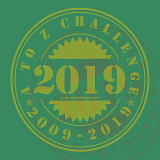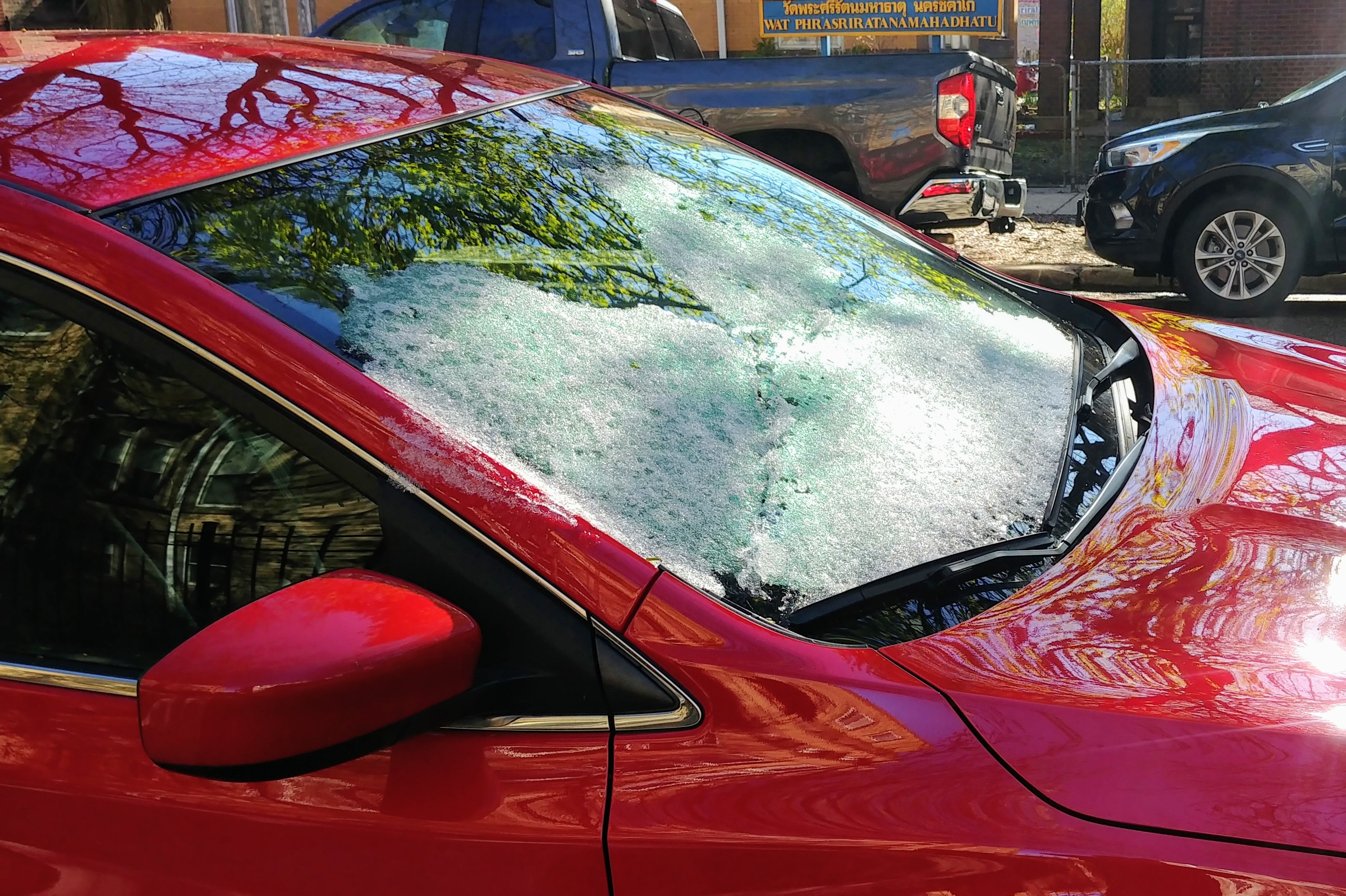During the A-to-Z challenge, I discussed tempering, which is the art of tuning each note on the scale.
I'm a member of the Apollo Chorus of Chicago, and serve on its board. Every year since 1879, we've performed Händel's Messiah. Given the piece premiered in 1742, modern equal tempering would neither have been an option nor would it have sounded pleasing.
In a conversation yesterday with Dr. Stephen Alltop, our music director, I asked him what tuning we use. He replied:
We use an unequal temperament called Bach-Barnes. Messiah keys range from four sharps to four flats so I tweak the temperament to sound as good as possible in that range of harmonies.
So that's interesting. We perform an 18th-century work with 20th-century instruments using 21st-century tuning.
(We perform it next on December 15th and 16th at Harris Theater in Chicago.)
Washington Post columnist Charles Lane sees a disturbing connection between Jeopardy! champion's streak on the show and the data-driven approach that has made baseball less interesting:
People seem not to care that Holzhauer’s streak reflects the same grim, data-driven approach to competition that has spoiled (among other sports) baseball, where it has given us the “shift,” “wins above replacement,” “swing trajectories” and other statistically valid but unholy innovations.
Like the number crunchers who now rule the national pastime, Holzhauer substitutes cold, calculating odds maximization for spontaneous play. His idea is to select, and respond correctly to, harder, big-dollar clues on the show’s 30-square gameboard first. Then, flush with cash, he searches the finite set of hiding places for the “Daily Double” clue, which permits players to set their own prize for a correct response — and makes a huge bet. Responding correctly, Holzhauer often builds an insurmountable lead before the show is half over.
Dazed and demoralized opponents offer weakening resistance as his winnings snowball. And, with experience gained from each new appearance on the show, Holzhauer’s personal algorithms improve and his advantage grows.
In short, this professional gambler from Las Vegas does not so much play the game as beat the system. What’s entertaining about that? And beyond a certain point, what’s admirable?
Of course, Holzhauer’s strategy could not work without his freaky-good knowledge of trivia, just as baseball’s shift requires a pitcher skilled at inducing batters to hit into it. The old rules, though, would have contained his talent within humane channels. As it is, he’s set a precedent for the further professionalization of “Jeopardy!,” a trend which began 15 years ago with 74-time winner Ken Jennings.
If you enjoy watching nine batters in a row strike out until the 10th hits a homer, you’re going to love post-Holzhauer “Jeopardy!”
Also interesting is the timing: Charles van Doren died April 9th. He won the equivalent of $1.2m in 1957 by cheating on a game show.
 Here is the list of topics I wrote about for the 2019 Blogging A-to-Z challenge on the topic of music theory:
Here is the list of topics I wrote about for the 2019 Blogging A-to-Z challenge on the topic of music theory:
I posted all of them on time this year (7am Chicago time, noon UTC) except on April 13th. I'm quite proud of that. Last year I was less diligent.
I hope you've enjoyed the series. I'm looking forward to next April's topic, which I think you'll find timely and informative.
 Today the Blogging A-to-Z challenge comes to a close, and for the fourth time this year, I have to punt.
Today the Blogging A-to-Z challenge comes to a close, and for the fourth time this year, I have to punt.
Search all you want: music theory really doesn't have any important terms starting with Z. So today, I'm going to talk about one of my favorite vocal works: Brahms' opus 103, "Zigeunerlieder" (Gypsy Songs). I performed three songs from the cycle with the Illinois Music Educators Association All-State Honors Chorus in 1987, 100 years after Brahms wrote it. (Yes, back then I was one of the 256 best high-school age singers in the entire state. I am, right now, blowing on my fingernails.)
Enjoy it. As the score scrolls by, see how much of what I discussed this year you recognize. And enjoy it; it's a cool song cycle.
That's it for the A-to-Z challenge this year. Next April, I'll have a timely topic. Before then, I expect to publish my 7,000th blog entry (probably mid-October), take my 100,000th photograph (probably this month), and live my 18,000th day (almost certainly December 17th).
Thanks for reading!
This month, Chicago has gotten some truly awful weather, more than most Aprils I remember. We saw only the second April in history to get two—count 'em—two snowstorms, the other time in 1938. This caps the snowiest season in 5 years and the 6th snowiest April ever.
Even though we had gorgeous, seasonably-cool weather yesterday, today through Thursday we will get so much rain not even the president could hyperbolize it enough.
We just want spring. The four days in April we got decent spring weather somehow don't seem sufficient.
 Our penultimate Blogging A-to-Z challenge post this year features the person in your life most likely to continue learning music theory: you.
Our penultimate Blogging A-to-Z challenge post this year features the person in your life most likely to continue learning music theory: you.
If you like music, go hear it. CDs and downloads are fine, but really you need to go out to hear live music as often as you can. Go hear the symphony; go to a garage band; toss a dollar in a busker's case in the subway. (You never know who might be performing down there.)
And keep learning how music works. This series has only skimmed the surface of music theory. The Web has several excellent sources for more depth: read Open Music Theory, take quizzes at MusicTheory.net, check out the Music Notation Project. Take a class at your local college. (In Chicago, DePaul and Northwestern have excellent music schools.)
Thanks for reading this series. I'll have a post for Z tomorrow, too.
It's like waking up to police tape around your building. Evidence of the crime:

Yesterday's weather would have sucked in February. At least it's sunny today.
The National Weather Service has issued a winter storm warning for Chicago:
...WINTER STORM WARNING IN EFFECT FROM 1 PM THIS AFTERNOON TO 1 AM CDT SUNDAY...
- WHAT...Rain transitioning to a heavy, very wet snow early in the afternoon and continuing into this evening. Total snow accumulations of 3 to 8 inches will be possible by this evening, with the highest amounts across northern portions of Kane, DuPage, and Cook counties. Snowfall rates of 1 to 2 inches per hour will be possible for several hours this afternoon into this evening. Accumulations of 1 inch or less are expected across portions of southern Cook County. Northeast winds will also gust as high as 35 mph late this afternoon and evening.
- WHERE...Kane, DuPage and Cook Counties.
- WHEN...From 1 PM this afternoon to 1 AM CDT Sunday. Heaviest snowfall rates 3 to 8 PM.
- ADDITIONAL DETAILS...Travel could be very difficult in heavy snowfall and gusty winds with greatly reduced visibilities. Minor tree damage will also be possible to due to the heavy snow and wind.
We still don't know how bad it will be, despite the warning:
Forecasters said they still were tracking the exact path of the storm Saturday morning, but the possibility of snow was most likely north of Interstate 88 — and areas most likely to be hit by more snow were expected to be on the Northwest Side, in northern Cook County suburbs and in Lake and McHenry counties.
Downtown and along the north lakefront, 50–75 mm of accumulation was predicted. The storm should end by midnight, the weather service said.
And yet, we've had worse. We had over 25 mm of snow on 1 May 1940, and measurable snowfall on 22 May 1917. And in Chicago, we won't have the up to 225 mm they'll get in parts of Wisconsin.
 The Blogging A-to-Z challenge sometimes loses its way when the topic you want to write about doesn't really have anything interesting to say for one of the letters of the alphabet.
The Blogging A-to-Z challenge sometimes loses its way when the topic you want to write about doesn't really have anything interesting to say for one of the letters of the alphabet.
So let it be with X.
Further, it's finally spring in Chicago, so maybe the sunlight and warm weather have made me a little lazy.
To that point, let me just say that the xylophone is a percussion instrument with wood bars that you strike with a mallet to make sounds. Like this:
University College of London researchers John Jerram and Nikki Shure have evidence that rich North American men are the most likely to employ bullshit:
Study participants were asked to assess their knowledge of 16 math topics on a five-point scale ranging from “never heard of it” to “know it well, understand the concept.” Crucially, three of those topics were complete fabrications: “proper numbers,” “subjunctive scaling” and “declarative fractions.” Those who said they were knowledgeable about the fictitious topics were categorized as BSers.
Using a data set spanning nine predominantly English-speaking countries, researchers delineated a number of key findings. First, men are much more likely than women to master the art of hyperbole, as are the wealthy relative to the poor or middle class. North Americans, meanwhile, tend to slip into this behavior more readily than English speakers in other parts of the globe. And if there were a world championship, as a true devotee might appreciate, the title would go to Canada, data show.
Finally, a between-country comparison finds that young people in Canada and the United States are the most likely to over-sell themselves overall, with those in Europe being much less likely to engage in such behavior.
Taken as a whole, the results appear to suggest that the countries with the greatest propensity toward bombast also have the smallest variances between groups living within them. In the U.S. and Canada, for instance, there may simply be so much BS going around that everyone ends up partaking in it.
The paper is available from IZA.